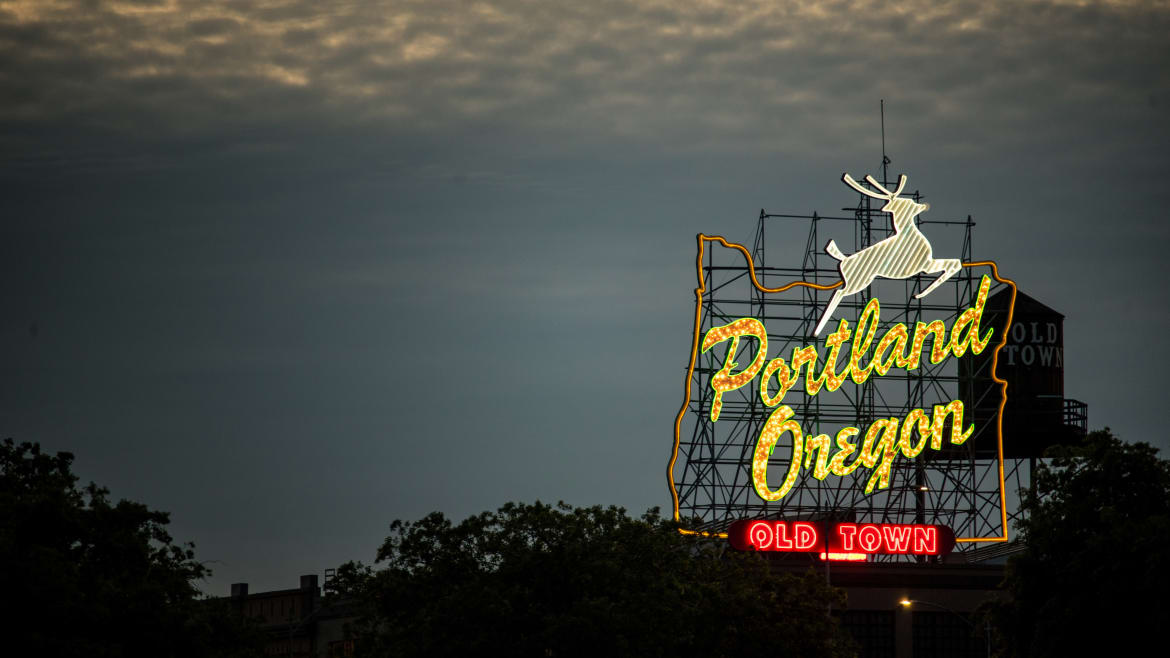Getty
Last fall, on the worst day to take a helicopter ride above the city of Portland, Oregon, in months, I climbed into a Robinson 44 chopper and soared above my adopted City of Roses. The bird roared nimbly from the roof of the headquarters of Portland’s Police Bureau, the understaffed agency that has found itself a focal point of all the grown-up, big-city problems a town known to the nation for much of the last two decades as the quaint “Portlandia” now faces: a soaring homicide rate; an alarming spike in gun violence; homeless camps proliferating from one end of town to the next and hiding fleets of stolen cars and bicycles; meth and heroin addicts openly smoking and shooting up in the streets, a litany of problems afflicting a city once known mostly for good food and beautiful parks and “weird” people and that skit about Colin the Chicken.
Leaving the cop shop, the helicopter banked over the swanky The Nines Hotel that was home for the weekend and to the downtown battered by two years of a pandemic, Black Lives Matter protests, riots and brawls between antifa and the Proud Boys. We were too high up to see anything but the confluence of beautiful old and new architecture, of rivers and forests and roads, a nice way to watch Portland’s troubles evaporate, stepping back to admire the city’s indelible beauty even if that means not squinting too close at the grit that has driven thousands of fed up residents out and into the suburbs, or away entirely from a west coast whose cities all seem to be battling the same plagues.
I made myself a tourist in Portland this fall after I realized I wasn’t sure what to think of Portland anymore. It’s a place that everyone seems to have an opinion about, whether you’re a Fox News host hoisting the city up as an example of failed liberalism or an All Cops Are Bastards activist ready to tar and feather city officials and their gendarmes for riding hard on protestors. Becoming a tourist here was its own kind of bubble, especially because it meant spending several days over a period of a few weeks hopping boutique hotels and eating at superb restaurants and visiting art museums and gardens and just walking — I left my car at home and traveled via Lyft and on foot. But tourism is how 11 million people experienced Portland in 2021, and it’s in visiting the city and seeing its sights and interacting with its characters that Portland tells its story to the world. From my very first rideshare to the Ace Hotel, I saw a portrait of Portland unfold. Coolio was on the driver’s radio, and he’d just died at age 59 from a heart attack. I muttered “RIP,” which led to about as earnest and interesting a 15-minute-long conversation between two white dudes can be, about what it must be like to grow up Black in America.

